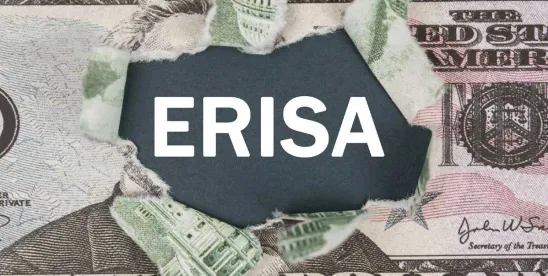In Central States, Southeast & Southwest Areas Pension Fund v. Sheets Enterprise, No. 24 cv 2277 (N.D. Ill.), a district court held that an employer could not avoid being held liable for withdrawal liability simply because it had been dissolved under state law. The decision is instructive because it shows the limits that state law dissolution proceedings may have in avoiding obligations like withdrawal liability that are created by federal law.
Background
Sheets Enterprises (“Sheets”) was a Kentucky corporation that contributed to the Central States Pension Fund (the “Fund”). In late-2016, Sheets ceased all operations for which contributions were required to the Fund, thereby effecting a complete withdrawal, and the next year, Sheets filed a notice of dissolution with the Kentucky Secretary of State. The Fund only learned of Sheets’ withdrawal and its subsequent dissolution in May 2023, nearly six years later. In November 2023, the Fund assessed Sheets with $675,000 in withdrawal liability and commenced suit when Sheets failed to pay.
Sheets did not commence arbitration to challenge the withdrawal liability and instead presented two principal arguments in the collection litigation. First, it argued that the court lacked personal jurisdiction to entertain suit against a dissolved corporation. Second, Sheets argued that the Fund’s claim had been extinguished as part of dissolution proceedings under Kentucky state law. Those laws provide that a dissolved corporation may dispose of claims against it if it publishes notice of its dissolution and no potential claimants sue within two years. Sheets argued that because it published its notice in 2017, and the Fund had failed to file suit to collect the withdrawal liability within the next two years, any further efforts by the Fund to collect the liability were time-barred.
The District Court’s Ruling
The district court rejected both defenses and entered judgment in favor of the Fund. The Court held that dissolved corporations retain the capacity to sue and be sued under Kentucky law, and thus there was no basis for Sheets’ contention that the Court lacked personal jurisdiction over it. The Court also held that ERISA preempted any limitations period under Kentucky’s dissolution statutes. Under ERISA, suits to collect withdrawal liability must be brought within six years after the cause of action arises or within three years of the date the plaintiff acquires knowledge of the cause of action. The Court held that the statutory limitations period could not be shortened by Kentucky state law.
Proskauer’s Perspective
The Court’s ruling is another example of the broad scope of ERISA’s preemptive reach. Employers that intend to dissolve and wind up their affairs should be especially mindful of the decision, as those proceedings may not be sufficient to dispose of claims for withdrawal liability owed to multiemployer pension plans.



 />i
/>i
